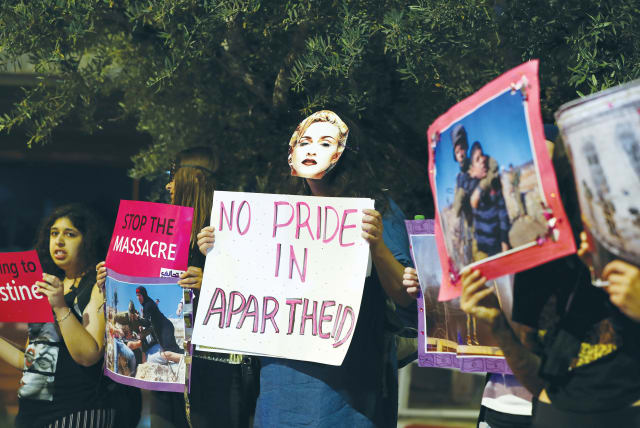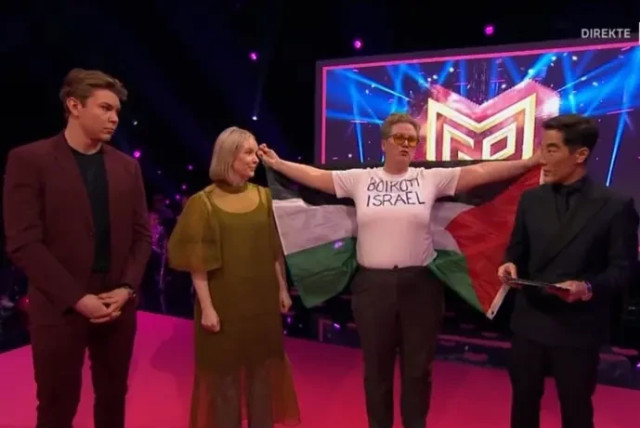Iceland may pull out of Eurovision over Israel’s attendance in light of Gaza war

The decision was reportedly made due to Israel’s participation in Eurovision, given the Jewish State’s ongoing war with the Palestinian terror organization, Hamas.
Iceland has severed the connection between Iceland's national song contest Söngvakeppnin and Iceland’s participation in Eurovision, the Icelandic public-service broadcasting organization, RÚV reported on Tuesday.
The decision was reportedly made due to Israel’s participation in Eurovision, given the Jewish State’s ongoing war with the Palestinian terror organization, Hamas.
RÚV director general Stefán Eiríksson reportedly noted that contestants vying for success in the song contest are concerned about the current state of affairs in Gaza and that such concerns have been conveyed to the EBU.
"They [the contestants] apply with the goal of becoming Iceland's contribution to Eurovision,” Eiríksson is quoted as saying. “They share concerns about the state of affairs just like we do. This has been our preparation for Eurovision, and we've announced our intention to participate without any changes. However, we do not know what the future holds."
Consequently, RÚV reported, that the decision regarding whether or not to ultimately participate in Eurovision will be made by the winner of the Söngvakeppnin in mid-March after a victor has been declared.
Waiting to decide on Iceland’s Eurovision participation until after the song contest is unprecedented, the report noted.
Other Nordic countries could boycott Israel
The RÚV article noted that Eiríksson and song contest manager Rúnar Freyr Gíslason said that the demand to boycott Eurovision due to Israel's participation is not common among other countries. Outside of Iceland, only Norway and Finland are thus far taking actions influenced by such a demand, the report added.
In December, the Icelandic Association of Composers and Lyricists objected to Iceland's participation in the contest unless Israel is disqualified.
However, the European Broadcasting Union rejected this, saying that the Eurovision Song Contest was a competition between public broadcasters and not governments, they further asserted the apolitical nature of the contest which is aimed at uniting audiences worldwide.
Jerusalem Post Store
`; document.getElementById("linkPremium").innerHTML = cont; var divWithLink = document.getElementById("premium-link"); if (divWithLink !== null && divWithLink !== 'undefined') { divWithLink.style.border = "solid 1px #cb0f3e"; divWithLink.style.textAlign = "center"; divWithLink.style.marginBottom = "15px"; divWithLink.style.marginTop = "15px"; divWithLink.style.width = "100%"; divWithLink.style.backgroundColor = "#122952"; divWithLink.style.color = "#ffffff"; divWithLink.style.lineHeight = "1.5"; } } (function (v, i) { });

